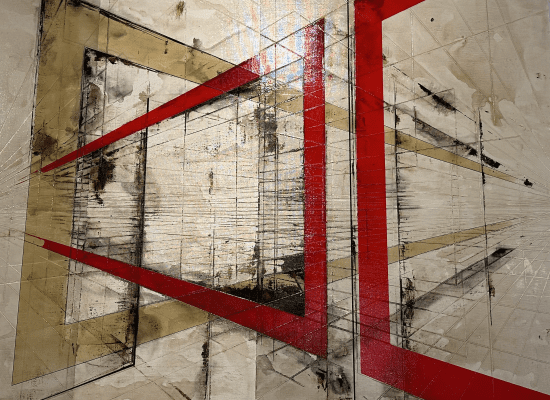Featured photo: woman reading | © Jill Wellington on Pixabay
Even if one or two readers think that I should not publish any more poems on the blog, it is precisely poems that run like a common thread through this weblog.
Actually, I have most of these poems with me a separate day which, however, is only used by very few - mostly other nerds. And so I'll just write my own article, which will serve as an overview of the poems I mentioned or published here. Those of my readers who don't like poems or even disagree with my selection are welcome to simply "skip" this post.
Everyone else might find one or two new ideas. And if you're wondering why now, I'll answer that because in a few days, more precisely on November 23rd, Paul Celan It's his birthday and I already pointed out his “Death Fugue” in the blog in 2021 - tragically, this poem is more relevant today than ever before! Paul Celan had probably recognized a very long time ago that it was completely pointless to try to make us Europeans better people and as a result chose suicide on April 20, 1970.
What do we say so beautifully? — the best always go first!
Count
- Farewell to Heilbronn (Paul Hegelmaier)
- A clear midnight (Walt Whitman)
- A dream within a dream (Edgar Allan Poe)
- Advent (Rainer Maria Rilke)
- Advent (Oriole)
- Ample make this bed (Emily Dickinson)
- At the table of life (Eugene Roth)
- to argument (Thomas Moore)
- To the soldiers of the great war (Gerrit Engelke)
- An essay on criticism (Alexander Pope)
- An Essay on Man (Alexander Pope)
- Animula (Publius Aelius Hadrianus)
- As bad as a mile (Phillip Larkin)
- A soldier (Robert Frost)
- To a grave (Joachim Ringelnatz)
- To a dancer (Ludwig Uhland)
- Aurora (Jacob van Hoddis)
- Foreword (Joachim Ringelnatz)
- Limited (Wilhelm Busch)
- Bumerang (Joachim Ringelnatz)
- Chanson d'automne (Paul Marie Verlaine)
- DAIMON, demon (Johann Wolfgang von Goethe)
- The comfort of this world (Friedrich Hölderlin)
- The Song of the Bell (Friedrich Schiller)
- The good comrade (Ludwig Uhland)
- The Marble Boy (Conrad Ferdinand Meyer)
- The Panther (Rainer Maria Rilke)
- The unfulfilled wish (Friedrich Rückert)
- The Sorcerer's Apprentice (Johann Wolfgang von Goethe)
- The question remains (Theodor Fontane)
- The chapel (Ludwig Uhland)
- Time and patience (Christian Morgenstern)
- The time doesn't work (Gottfried Keller)
- Die Zeit steht still (Masha Kaleko)
- The Two Commandments (Erich Kaestner)
- The two parallels (Christian Morgenstern)
- Don't go gentle into that good night (Dylan Thomas)
- You don't have to understand life (Rainer Maria Rilke)
- Ego tripping (there may be a reason why) (Nikki Giovanni)
- Then and now (Friedrich Hölderlin)
- A parable about life (Albrecht Goes)
- Ein gleiches (Johann Wolfgang von Goethe)
- A dream (Johann Gottfried Herder)
- It's all vain (Andrew Gryphius)
- Spring (George Heym)
- Furu ike ya (Matsuo Basho)
- Gnome (Samuel Beckett)
- Autumn day (Rainer Maria Rilke)
- higher humanity (Friedrich Hölderlin)
- I don't know what it's supposed to mean (Heinrich Heine)
- If– (Rudyard Kipling)
- In winter (Justin Kerner)
- In a log book (Ludwig Uhland)
- In Flanders Fields (John McCrae)
- Engineering song (Heinrich Seidel)
- I think that maybe (Ronald Stuart Thomas)
- John Maynard (Theodor Fontane)
- good friday morning (Christian Morgenstern)
- Lawsuit (Fritz Singer)
- life leader (Eugene Roth)
- clearing (Ernest Jandl)
- Life (John wilkes)
- Life is but a dream (Lewis Carroll)
- Little boy blue (Eugene Field)
- Do it like Mr. Asmus (Heinrich Seidel)
- Manifesto: The Mad Farmer Liberation Front (Wendell Berry)
- You become humble (Eugene Roth)
- Meditation on Statistical Method (James V Cunningham)
- Meeting of the Waters (Thomas Moore)
- Musee des Beaux Arts (WH Auden)
- After a heavy dream (Gerrit Engelke)
- night thoughts (Heinrich Heine)
- Nature poem (Reiner Kunze)
- Time never stands still... (Friedrich Rückert)
- Richard cory (Edwin Arlington Robinson)
- Roads (Edward Thomas)
- lullaby (Carl Buses)
- heavy things (Fritz Singer)
- Song Of Myself (Walt Whitman)
- sun 19 (William Shakespeare)
- Sonnet: I thank you (Henry Timrod)
- So now? (Charles Bukowski)
- Spleen (Charles Baudelaire)
- assault (August Stramm)
- The guy in the glass (Dale Wimbrow)
- The Hollow Men (TS Eliot. )
- The Lay of the Last Minstrel (Walter Scott)
- The little toy dog (Frank Jacobs)
- The Palace (Kaveh Akbar)
- The road not taken (Robert Frost)
- The Seagull (FrankApps)
- The Summer Day (MaryOliver)
- The Waste Land (TS Eliot. )
- Time hammers us with quiet perseverance (Nancy Gibson)
- Death joint (Paul Celan)
- To make a prairie (Emily Dickinson)
- To the Virgins, to Make Much of Time (Robert Herrick)
- Sadness d'été (Stephane Mallarme)
- Uber den Bergen (Carl Buses)
- elm tree (Ludwig Uhland)
- Un plaisant (Charles Baudelaire)
- immortality (Friedrich Schiller)
- demise (Albrecht Haushofer)
- try it (Wolfgang Borchert)
- Trust in God (Friedrich Wilhelm Weber)
- Four candles (Elli Michler)
- Vitae summa brevis spem nos vetat incohare longam (Ernest Christopher Dowson)
- The happiness of giving (Bertolt Brecht)
- In front of the gate (Johann Wolfgang von Goethe)
- Patriot beware (Eduard von Bauernfeind)
- Wanderer's Nightsong (Johann Wolfgang von Goethe)
- Christmas carol, dry cleaned (Erich Kaestner)
- end of the world (Jacob van Hoddis)
- world wisdom (Friedrich Nietzsche)
- World Pain (Paul Laurence Dunbar)
- We wear the mask (Paul Laurence Dunbar)
- What if you slept? (probably from Samuel Taylor Coleridge)
- Who am i (Heinrich Kuemmerle)
- wind talk (Christian Morgenstern)
- Workaholics (Lars van Rome)
- Two sails (Conrad Ferdinand Meyer)
These are probably most of the poems listed here in the weblog. In case you come across another one, please let me know.
"'To err is human,' said the mouse and ate the cat."
Heinrich Kümmerle, 1970s








Can never be enough 😎 Keep it up!
Dear Mr. Kummerle,
They indicated that some readers have expressed reservations about poems on Kümmerle's weblog. Don't let this bother you. A poem every now and then shouldn't bother or even hurt anyone.
The list of poems published so far shows a colorful and international mix. Thank you very much for that.
I have on your list, among other things Heinrich Heines “Night Thoughts” clicked:
I think of Germany at night,
Then I lost sleep.
I can't close my eyes anymore
And my hot tears flow.
This beginning is often quoted, but some or some cannot name the author. Heinrich Heine — born in Düsseldorf in 1797; died in Paris in 1856 and was buried there in the Montmartre cemetery. He sometimes almost despairs of his fatherland Germany. The verses at the beginning of the first poem in “Germany — A Winter’s Tale” (1844) also bear witness to this:
It was in the sad month of November,
The days became duller,
The wind tore the leaves from the trees,
Then I traveled over to Germany.
And when I got to the border,
Then I feel a stronger knock
In my chest, I think so
The eyes began to drip.
A passage from Heine's tragedy “Almansor” (1823) fits these sad November days well. “Almansor” takes place in Andalusia around 1500, when, after the Reconquista, the Inquisition acted as religious police and burned the books of “people of other faiths”. Almost anticipating the dark times in Germany, Heine wrote: “That was just a prelude, where you burn books, you also burn people in the end.”
But Heinrich Heine was also a romantic who wrote for the soul. The “Song of the Lore-Ley” is certainly one of the most beautiful examples of this. The Nazis ostracized and banned Heine because he came from a Jewish family. But they were unable to banish the “Lore-Ley” from the repertoire of men’s choirs and song tables in Germany. That's why the musical texts after 1933 said "Author unknown."
Another romantic poem - it is also touching the soul - is included in the “Travel Pictures” and therein in the “Harzreise” (1824):
The hut stands on the mountain,
Where the old miner lives;
The green fir tree rustles there
And the golden moon shines.
This poem reminds me a lot of my fatherly friend and later boss Erwin Fox (Culture and Social Mayor in Heilbronn from 1964 – 1979), whom I met for the first time as a little boy of 9 years. Years later, Fuchs introduced us to Heine's life and work in the youth group of the ÖTV union (today: United Services Union Ver.di). I have one Erwin Fox-Wrote biography. She is as Online publication No. 37 on the Heilbronn City Archives website been published.